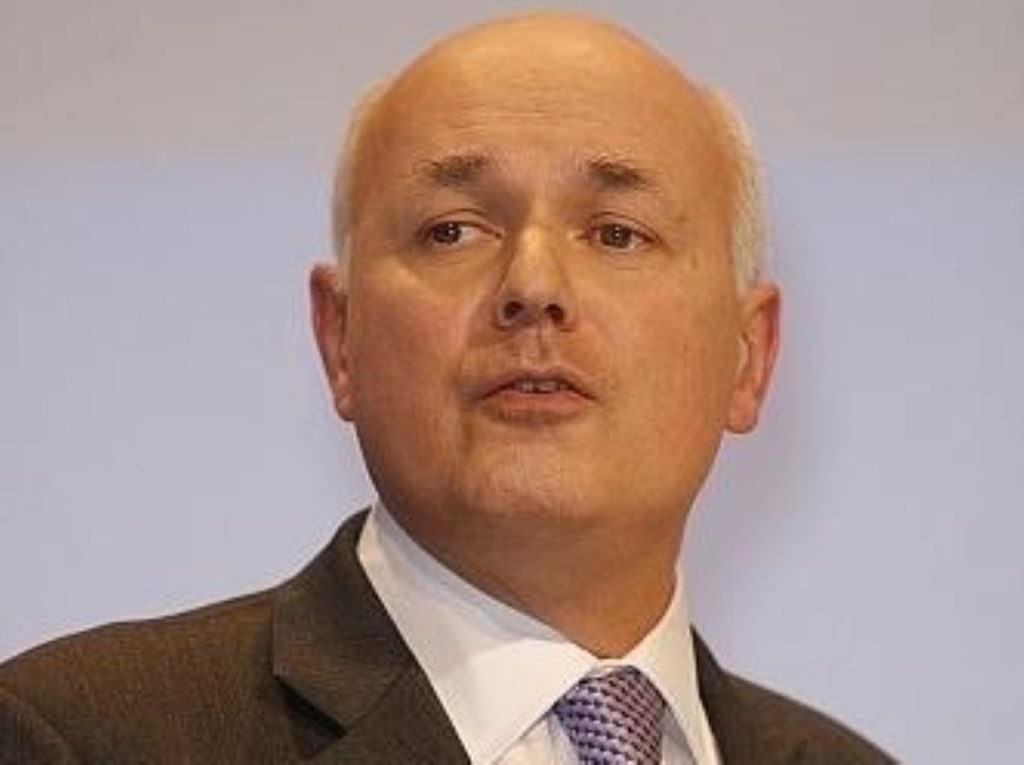Relieved IDS unveils universal credit
Iain Duncan Smith has secured his universal credit reform, confirming the biggest shake-up of Britain’s benefits system for a generation.
The work and pensions secretary has spent the last few months arguing with chancellor George Osborne about where the money will come from to pay for the reform.
No 11 had threatened to veto his changes because of the administrative costs of transferring to the new system.


But yesterday chancellor George Osborne said he and Mr Duncan Smith had achieved “agreement on a radically new welfare state”.
And today Mr Duncan Smith confirmed: “Today I am delighted to announce the introduction of the universal credit, which will restore fairness and simplicity to a complex, outdated and wildly expensive benefits system.”
The switch to the universal credit, which will replace a range of benefits including housing benefit, income support and incapacity benefit, is expected to be funded through savings made in its first year.
The former Tory leader was also able to announce a scheme offering up to £2,000 and business mentoring for the unemployed who are looking to start a firm.
The new enterprise allowance aims to have established up to 10,000 new small businesses by next year.
“This is the biggest reform of the welfare system in a generation,” Mr Duncan Smith told delegates in Birmingham.
“No longer will they be able to say it isn’t worth their while going to work.
“No longer will they be trapped in a complex system which means they have to ask an advisor if they will better off in work than on benefits.
“We will change this broken system to help those at the bottom end make a new start and change their lives through work.”
The work and pensions secretary concluded his speech with a personal note, recalling a visit to a group of people in Glasgow who told him they would forget him in years to come.
“I was stung by that remark most of all because in my heart of hearts I knew they were right. Just another politician, another photo op, another town, the usual cynical vote catching procession,” he explained.
“That is why I swore to myself there and then that I would try to change that and put their problems front and centre stage of British politics.”
The biggest obstacle to Mr Duncan Smith achieving his wish in recent months has been the Treasury, but – as Mr Osborne deals with criticisms about the decision to cut child benefit for the middle-class – he appears to have succeeded in his own goals completely.
“For me this is a personal journey as much as it is about government,” he said, before concluding: “On the sixth of May the British people honoured us. Now let us honour them.”

